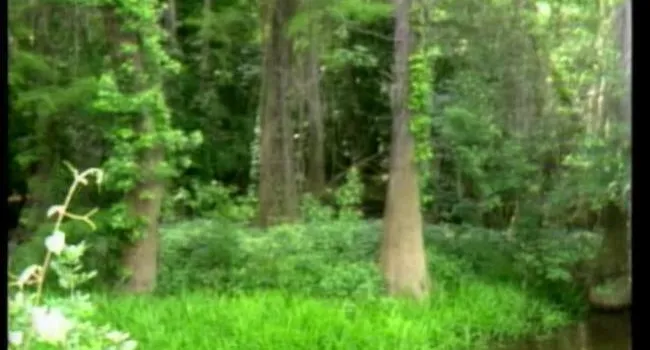
Congaree Swamp (S.C.) Stop 6 10
Episode
10
Video
Closer to the water, Rudy and Jim find more Cypress-Tupelo trees, and come across two Clubtail dragonflies in the process of mating.Visit the South Carolina Department of Education for Science standards.
Take a quick look at all Science series on Knowitall.org

Video
Closer to the water, Rudy and Jim find more Cypress-Tupelo trees, and come across two Clubtail dragonflies in the process of mating.
Video
At this last stop at Congaree Swamp, Rudy and Jim find another Sweetgum tree, which grows very well in this wet, muddy environment. A record size Willow Oak tree, toppled over by the wind, knocked...
Video
Rudy and Jim visit Congaree Swamp National Monument, a fifteen thousand acre nature preserve. This naturally protected swamp features a variety of tall hardwood trees. Buffer Zone - We see that the...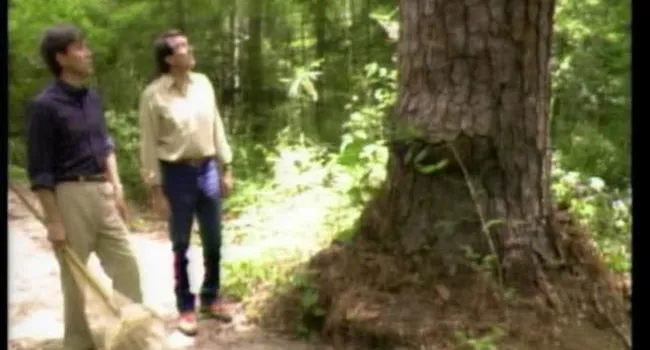
Video
The Edge - Here, where the high ground meets the flood plain, we see more plant diversity. Large Cinnamon Ferns, Dog Hobble, Loblolly Pine trees, and American Beech trees frequent the area. With a...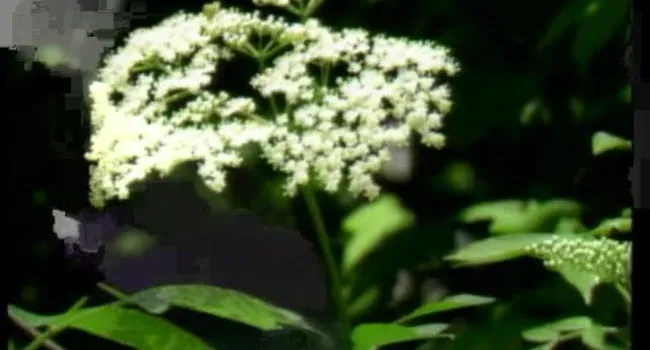
Video
As Rudy and Jim make their way closer to the Flood Plain, we see more tall canopy trees: Red Maple trees, and Sweet Gum trees. Several flowering plants grow in the area as well: Elderberry, Winged...
Video
Before making their way to the next stop, Rudy and Jim come across an Eastern Mud turtle resting under a bush.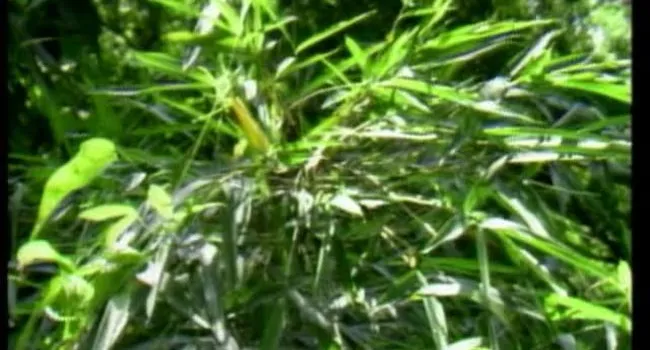
Video
At the next stop, Rudy and Jim analyze more of the plants found in the area: Hackberry trees, and Switch Cane dominate the area. A healthy Poison Ivy can be seen completely encasing a dead oak tree.
Video
“Ghost Beach” - Rudy and Jim further assess the damage to the island by Hurricane Hugo. The pines and live oaks at the shore line are gone, but the Palmetto trees survived. The water is slowly eroding...
Video
Bulls Island was one of the most heavily damaged areas in South Carolina by Hurricane Hugo. Rudy and Jim visit Bulls Island to observe how nature is healing itself after the deadly hurricane. Here at...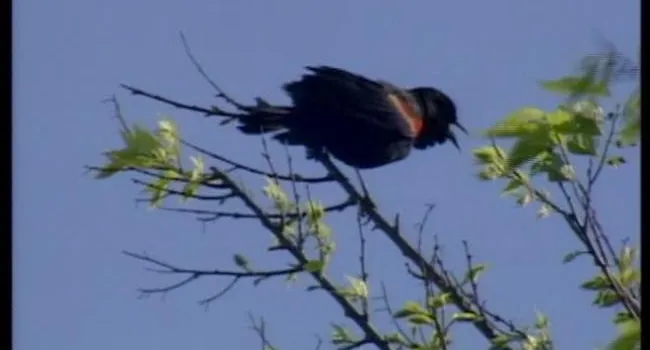
Video
At the same stop, Rudy and Jim come across a Northern Mockingbird, and a Red-Wing Blackbird perched in some nearby trees, making their distinctive bird-calls. Feeding on some nearby Dewberry flowers...